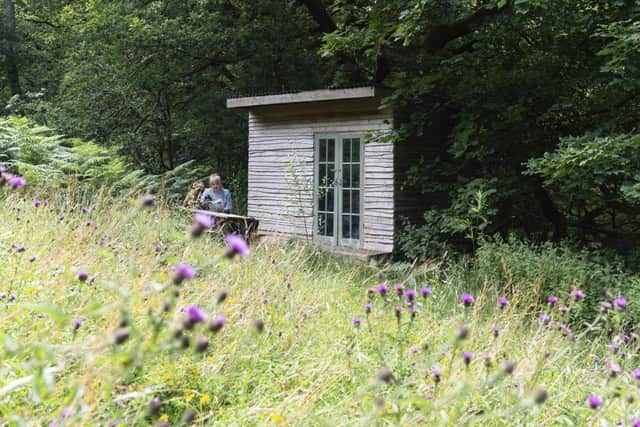RSPB: Give nature a helping hand this summer


At dusk you may notice moths visiting honeysuckle and other scented flowers. Swaths of glorious meadow flowers attract dancing butterflies. As evening begins to fall, yet more perfume is produced by annuals, such as nicotiana, night-scented stocks and evening primroses. I’ve spotted bats swooping over scented flowers, snapping up insects. Competition for food among birds can be intense, with so many young fledglings on the scene. It’s important to keep bird feeders topped up to give our feathered friends a helping hand.
Whatever your outdoor space, be it a balcony or courtyard, garden or window box, there is plenty you can do for nature. If you have grass, set aside areas of longer grass and temporary-no-mow areas. This gives an opportunity for a wider variety of plants, like wildflowers to grow, attracting a range of insects, such as crickets, grasshoppers, and butterflies, giving them a home.
Advertisement
Hide AdAdvertisement
Hide AdI’ve created a mini meadow in my garden using native wildflowers. I started by mowing a small area of my lawn as short as possible, then scratching it with a rake to expose little bits of soil, it might look a bit messy but its necessary to give the seeds a chance to germinate. Don’t forget to remove all clippings and raked vegetation. Once the area is prepped, sow the seeds at 1g per square metre and water. I’ll let the area grow without mowing for the rest of July and August to give the seeds a chance. It’s unlikely I’ll see any growth until next year, but it will be worth the wait.
RSPB have lots of great tips and expert advice for what to do in your garden in July and August, so if you’re keen to renovate your outdoor space to benefit nature, check out the website here: https://bit.ly/RSPBJulyGardening. Be the first to hear more about how you can help Save Our Wild Isles. WWF, the RSPB and the National Trust are working together to bring nature back from the brink. Sign up and get inspired www.saveourwildisles.org.uk